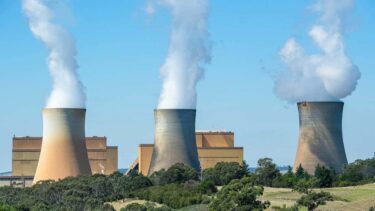Share this article
The National Greenhouse and Energy Reporting (NGER) scheme, established by the National Greenhouse and Energy Reporting Act 2007 (NGER Act), is a national framework for reporting and disseminating company information about greenhouse gas emissions, energy production and energy consumption.
Although obligatory for large emitters, many companies also leverage the data and analysis acquired in complying with the legislation, to benefit their business. Here we explore turning NGERs reporting from obligation to opportunity in identifying emission reduction opportunities, developing decarbonisation strategies and as a tool for benchmarking with other peers and competitors – a practise set to continue as stakeholders continue to place significance on the disclosure and tracking of corporate emissions and targets.

Making the most of NGERs data
Since the enactment of the NGER Act and subsequent creation of the Clean Energy Regulator and the National Greenhouse and Energy Reporting (NGER) Scheme, all corporations in Australia that meet specific high emissions thresholds must report their emissions and energy information annually under NGERs.
In complying with NGERs, companies implement internal GHG emissions measurement, reporting and monitoring systems to understand and manage their internal requirements and to satisfy a variety of stakeholders who demand access to this information, including shareholders, regulators, commercial partners, investors and financial institutions, and consumers.
Mandatory reporting requirements such as NGERs, incentivise companies to collect climate change information and data, in order to identify business risks, areas of potential costs savings and new business opportunities.
Additionally, as businesses continue to navigate and implement the recommendations of the Task Force on Climate-Related Financial Disclosures (TCFD), institutional and non-institutional investors more and more require their investees to identify, assess and manage their climate risk, for which the disclosure of greenhouse gas emissions is a key component. This is even more salient for heavy emitters required to report emissions under NGERs, who continue to come under pressure to introduce emissions reduction targets and reduce their climate risk and exposure.
Many companies therefore see reporting requirements not as a constraint, but as a way to identify business potential; providing a means to explore new opportunities, reconsider the way they conduct their business and acquire new market shares.
New commercial opportunities are often associated with the development and marketing of green products in response to changing consumer preferences. Data reported under NGERs can provide a means for companies to identify where such commercial opportunities exist and help build a business strategy that integrates these into its decarbonisation strategy.
Using NGERS data to establish a data driven decarbonisation strategy
A recent example of this is Ampol, Australia’s biggest petrol and diesel supplier, who earlier this year announced a new decarbonisation strategy pivoting from fossil fuels to cleaner and more environmentally friendly products and services, including electricity, hydrogen, gas, biofuels and carbon mitigation.
The decarbonisation strategy consisted of several emission reduction targets across both the Convenience Retail and Fuels and Infrastructure business units, which Ndevr Environmental supported Ampol to develop using its historical NGERs data. The strategy aims for a 25% reduction in operational emissions across its Convenience Retail unit by 2025, and a 50% reduction by 2030, compared to 2021 emissions levels.
While there is growing global momentum around companies making ambitious climate commitments, companies still have a lot of work to do to decarbonise faster. Most recent assessments performed by Climate Action 100+ show that no company has fully disclosed how it will achieve its goals to become a net zero enterprise by 2050 or sooner. This includes establishing short and medium-related targets to deliver ambitious emissions reductions within the next decade.
It is positive that big companies around the world and in Australia such as Ampol are beginning to take such steps to address the urgency of climate change. From our perspective, we see a real shift in momentum over the past 12-18 months, but more companies need to take action and be increasingly ambitious with their targets.
Benchmarking NGERs data against peers and competitors
Leveraging NGERs emissions data for benchmarking also establishes some key indicators of success for a business to achieve net zero emissions.
The recent announcement and upcoming pilot of the Clean Energy Regulator’s Corporate Emissions Reduction Transparency (CERT) report, will provide a central reference for Australia’s largest emitters and their stakeholders to compare emissions reduction targets, and assess companies’ progress against those targets. The strategic and efficient collection and reporting of emissions data under the NGER framework will therefore become increasingly important for companies working towards net zero emissions.
As businesses continue to play a significant role in reducing Australia’s carbon emissions, companies that have historically made the most of their NGER data, or those who view this as an opportunity to improve and innovate, will be well placed to demonstrate their emissions reduction commitment and progress, and be seen as leaders in the race to net-zero.
Want to know more about NGERs reporting?
Anthesis offer a range of services to support reporting under NGERs and CERT, including Climate Active certification support, benchmarking assessments, development of Science Based Targets and procurement of carbon offsets and renewable energy.
For a no cost, no obligation discovery session to discuss the developments, opportunities, and risks for your business under NGERS or the CERT, contact our team by mail or Call +61 3 7035 1740

